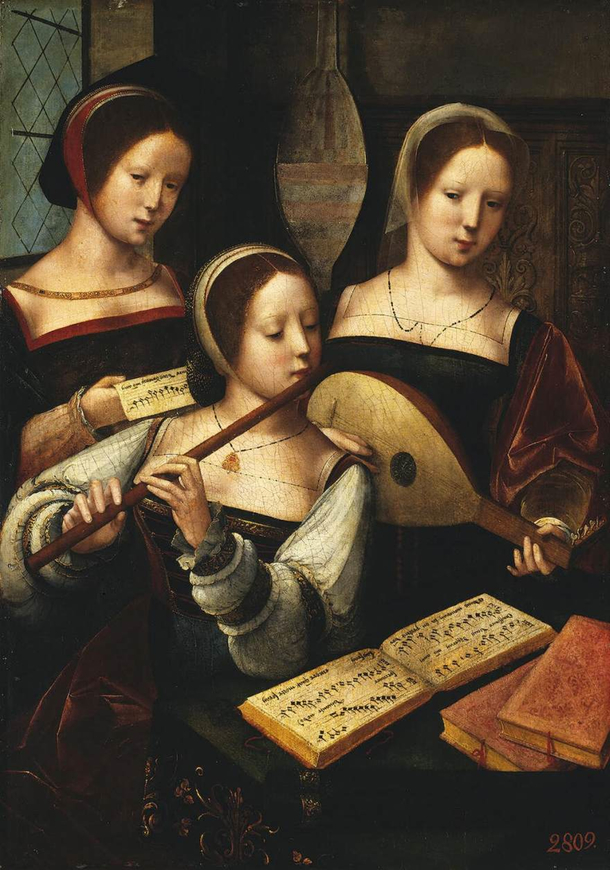
O Mistress mine, where are you roaming?
O, stay and hear; your true love’s coming,
That can sing both high and low:
Trip no further, pretty sweeting;
Journeys end in lovers meeting,
Every wise man’s son doth know.
What is love? ’Tis not hereafter;
Present mirth hath present laughter;
What’s to come is still unsure:
In delay there lies not plenty;
Then, come kiss me, sweet and twenty,
Youth’s a stuff will not endure.
—William Shakespeare, Twelfth Night, II, iii (1602)
These lines are sung by Feste, one of the more complex comic foils to appear in a Shakespearean work. He is something of a jester, of course, but he has an unmistakably philosophical underside (“Better a witty fool than a foolish wit”), pressing characters to abandon their self-pity, to recognize that life always brings its burdens — but pressing them also to seize the moment of love, which brings life’s rewards. All of this is very much the message of this sweet, simple, and yet poignant song, which attained celebrity in its own right in Shakespeare’s lifetime. Part of that celebrity was owed not to Shakespeare, however, but to the man who composed the music by which the words came to be known.
Listen to the setting of “O Mistress Mine,” one of the last works composed by Thomas Morley, a student of William Byrd’s who died shortly after the play opened, in the fall of 1602. Although he was an organist at St Paul’s Cathedral and he attempted to write some serious church music, Morley is best known for his perfection of the consort style (the introduction of the “broken consort,” in which wind instruments are added to the conventional strings) and of the English madrigal.
It’s likely that Morley knew and worked with Shakespeare — they lived close to one another in central London and worshiped in the same parish church — and it’s possible that some of his Shakespearean songs were actually commissioned by the Bard, though this has never been firmly established. What’s certain, however, is that Morley was a great admirer of Shakespeare’s writings.
Morley’s works are known for their light style and their conscious importation of folk melodies (such as his amazing setting of “Under the Green Linden” in the The First Booke of Consort Lessons (1597)). They are less ponderous and downbeat than works by such contemporaries as William Byrd and John Dowland, and so are well suited to Shakespearean comic romances. First, listen to a non-vocal broken-consort rendition of “O Mistress Mine” by Stockholms Barockensemble, then to a traditional theatrical performance by Ensemble Chaconne, with Pamela Dellal as soloist. A superior performance by the great Alfred Deller can be found here.



